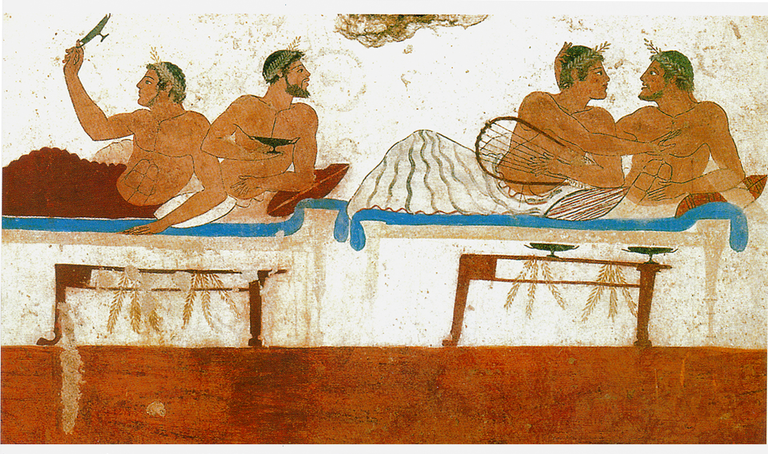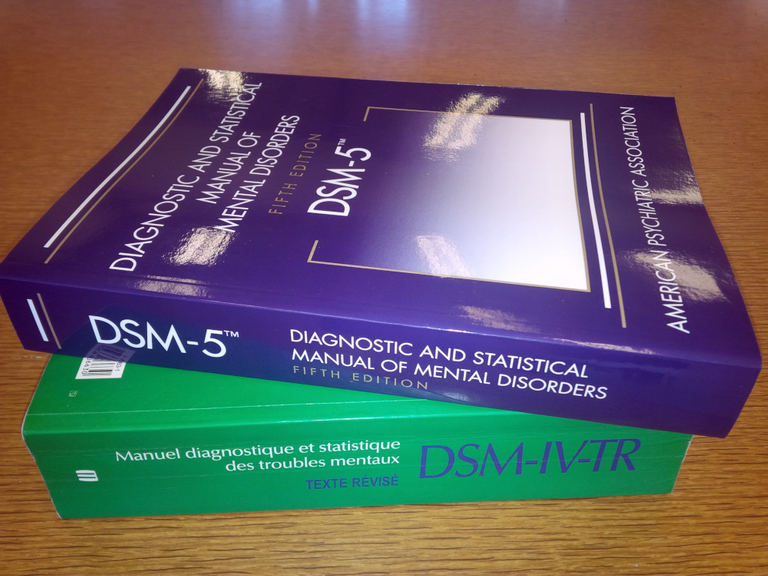Is Your Personality a Condition?
Being

Credit: Samuel Astin. Unsplash. "Sky above. Earth below. Peace within." Public domain (Unsplash license)
There is a line (quoted from Digital Mafia Talkies) in the Netflix series Playlist that inspired this blog:
All this time I just thought that I was different, I was a bit more energetic. Not that I had a condition.
The character who speaks this line is based on the real-life person, Martin Lorentzon, who co-founded the music streaming company Spotify. Up to this point Lorentzon had been my favorite character in the show. When he spoke this line, I was as upset as he was, not because he supposedly had a 'condition' but because his childlike spontaneity had for him, in that moment, seemed like an albatross instead of a gift.
Lorentzon had just been told by Peter Thiel, founder of Paypal,
I liked your pitch, but have you ever thought you might have a condition?... ADHD, maybe.
Thiel goes on to explain,
I only point out that many of the successful entrepreneurs seem to be suffering from a mild form of condition.
Suffering

Credit: Camila Quntero. Unsplash. Public domain (Unsplash License
And then Martin processes this 'diagnosis',
...it's like I don't know where I end and where the condition begins.

Does Martin Lorentzon have a condition? Perhaps. But do we not all have a condition, the condition of being? In his assessment of Lorentzon's personality, Thiel is adhering to a psychological construct that carries the imprimatur of the American Psychiatric Association. Indeed, it carries the imprimatur of the entire professional psychiatric community as expressed in the DSM.
In the DSM, which is the prevailing diagnostic tool for all mainstream mental health professionals, conditions (disorders), are assessed on a normative basis. There have been five DSM revisions so far. In each new edition, 'disorders' are redefined as society changes. For example, in the DSM V (the most recent version of the book, published in 2013), the diagnosis homosexuality as ego-dystonic homosexuality, was dropped.
The change with regard to homosexuality is explained in the website Very Well Mind (emphasis in the following quote is mine, not the website's):
Some of these changes were based on changing societal norms. For example, in the DSM-III, homosexuality was diagnosed as ego-dystonic homosexuality. In the revision, this specific classification was removed.
So, in 2012, a homosexual was suffering from a disorder, but in 2014, the suffering stopped. Before the revised DSM, the suffering was apparently not in the mind of the homosexual, but it was in the way the therapist viewed the homosexual. Meanwhile the client, the 'patient', had to endure a diagnosis, the assessment of a 'condition', and likely an attempt at 'treatment'.
Painting from the Tomb of the Diver in Paestum, Italy, 470 BCE

Credit: Greenworlder. Public domain. It seems the homosexual condition has been around for a long time.
The inclination to medicalize personality differences (that is, personalities that are distinct from the usual, or norm) is reflected in the various editions of the DSM. In 1980, on the eve of the publication of DSM-III, psychologist Jonathan Raskin led an effort to survey practicing mental health professionals about their view of the DSM.
90.6% of respondents were using DSM-II, but more than 40% worried it distorted how clinicians perceive clients, medicalized psychosocial problems, had reliability and validity issues, stressed diagnosis at the expense of treatment, obscured individual differences, and over-pathologized people.
DSM-IV in French and DSM-V in English

Credit: F.RdeC. Used under CC 3.0 license
Raskin is a proponent of an approach to mental health that differs from the DSM model. He is past president of American Psychological Association‘s Society for Humanistic Psychology. A statement for the Society for Humanistic Psychologists:
recognize the full range and richness of the human experience and are dedicated to understanding and appreciating people holistically,...as continually evolving... We assume that optimally-functioning people are consciously aware, responsibly free to make choices in accordance with their values, interdependent, goal-directed, meaning-making, and creative in relation to their experience.

The humanistic psychologist practices what is known as a person-centered therapy. This is "characterized by genuineness, nonjudgmental caring, and empathy." In an open letter that addressed the diagnostic protocols of mainstream psychiatrists/psychologists, a group of humanistic psychologists called into question the validity of normative-based criteria.
The diagnostic categories proposed by these frameworks — the DSM, the ICD and newly proposed models such as the RDoC project — are based largely on social norms about what constitutes “normal” or desirable behavior or experience. Their definitions inevitably rely on subjective judgments, which are themselves grounded in cultural norms... no biomarkers, confirmatory physical “signs” or pathognomonic evidence of biological causation have been discovered for the putative pathologies represented by the category labels within these systems. ...Significantly, diagnostic categories do not consistently predict response to medication or other interventions.
Let us return now to Martin Lorentzon and his newly-discovered 'condition'. Lorentzon was not aware that he was suffering from anything. He was happy, brilliant, successful. People found him odd. His behavior did not fit an expected model. It was out of the norm. On the basis of this, and only this, he was told he had a 'condition'. He seems to have been devastated by the 'news'. He exclaims (in the Netflix show) that now that he knows he has a condition, he has to change.
Streaming Music

Credit: Sammy Sander on Pixabay
Happy Martin, who previously felt "fearless", is suffering, thanks to the DSM and its popularized idea of normative mental health. As for ADHD, the condition with which Peter Thiel diagnosed Martin, this 'disorder' was not even listed in the first DSM. In the second DSM the 'disorder' is called Hyperkinetic Reaction of Childhood,. The journal Neuropsychiatry of London explains that this title implies a focus "primarily on symptoms of excessive motor activity".
In DSM-III, the same condition was characterized as Attention Deficit Disorder. DSM-IV revamped the condition once again, and it became Attention Deficit/Hyperactivity Disorder (ADHD). DSM-V kept the name, but introduced with it three subtypes. Finally, there was a recent revision to DSM-V, with changes I won't try to describe. These are more or less refinements and clarifications of the previous ADHD description. If you want to read a description of the new revision, you are invited to do so here.
Conclusion

So what is Martin suffering from? Which ADHD diagnosis was Peter Thiel referring to? I've no doubt that Martin Lorentzon's brain, or neurological chemistry, is different from the norm--whatever that is. But being different is not a disorder. We all have different ways of being.
We must learn to cope with those ways in order to achieve our life goals. Some of us learn differently. Some of us have different ways of focusing. But pathologizing differences is not necessarily the path to achieving our life goals.
Accent Illustration
 : @agmoore (me) from LIL, the LMAC Image Gallery
: @agmoore (me) from LIL, the LMAC Image GalleryAccent Illustration
 : @muelli from LIL, the LMAC Image Gallery
: @muelli from LIL, the LMAC Image Gallery
1https://dmtalkies.com/the-playlist-ending-explained-2022-2swedish-netflix-drama-mini-series/
3https://tvshowtranscripts.ourboard.org/viewtopic.php?f=1555&t=57089
4https://investors.spotify.com/governance/board-of-directors/person-details/default.aspx?ItemId=ed8f2d4a-2958-490c-b842-cbc74641b5b9
5https://psycnet.apa.org/record/2007-04811-005
6https://dictionary.apa.org/humanistic-psychology
7https://www.meaning.ca/web/wp-content/uploads/2019/10/212-13-430-2-10-20171212.pdf
8https://peakd.com/philosophy/@charlie777pt/humanism-and-existentialism-part-7-thomas-szasz-the-factory-of-madness
9https://psycnet.apa.org/record/2022-18157-001
10https://www.ncbi.nlm.nih.gov/pmc/articles/PMC7243207/
11https://psychclassics.yorku.ca/Rogers/therapy.htm
12https://www.psychologytoday.com/us/blog/making-meaning/201905/are-there-viable-alternatives-the-dsm-5
13https://www.saybrook.edu/2012/03/27/03-27-12/
14https://www.psychologytoday.com/us/blog/and-running/202111/5-tips-effective-work-personality-disorders
15https://www.ncbi.nlm.nih.gov/pmc/articles/PMC3955126/
16https://www.apadivisions.org/division-32/leadership/task-forces/diagnostic-alternatives
17https://www.apa.org/about/division/div32
18https://www.psychologytoday.com/us/blog/you-are-not-meant-be-happy/202110/over-medicalizing-suffering-undermines-mental-illness
19https://www.brown.edu/Departments/Joukowsky_Institute/courses/greekpast/4716.html
20https://www.verywellmind.com/dsm-friend-or-foe-2671930
21https://pubmed.ncbi.nlm.nih.gov/7457641/
22https://dsm.psychiatryonline.org/doi/book/10.1176/appi.books.9780890425787
23https://www.apa.org/monitor/2012/01/statement-dsm
24https://www.psychiatry.org/
25https://www.adxs.org/en/page/175/diagnostic-adhd-symptoms-according-to-dsm-icd-wender-utah-et-al
26https://www.facebook.com/165954086910361/posts/dr-hartner-and-dr-theurer-researchers-in-philosophy-and-the-social-sciences-publ/1046712868834474/
27https://www.researchgate.net/publication/258151885_Humanistic_Psychology_Alive_in_the_21st_Century
28https://hawksites.newpaltz.edu/psychology/archives/1028
29https://thelittlerebellion.com/index.php/2019/12/jonathan-raskin-professor-of-psychology-and-president-of-division-32-lets-us-have-a-peek-into-his-brain/
30https://www.ncbi.nlm.nih.gov/pmc/articles/PMC4283446/
31https://scholarworks.calstate.edu/downloads/kd17cv84k
32https://eternalisedofficial.com/2021/01/28/dasein-being-in-the-world/
Congratulations @agmoore! You have completed the following achievement on the Hive blockchain and have been rewarded with new badge(s):
Your next target is to reach 450 posts.
You can view your badges on your board and compare yourself to others in the Ranking
If you no longer want to receive notifications, reply to this comment with the word
STOPTo support your work, I also upvoted your post!
Check out the last post from @hivebuzz:
Support the HiveBuzz project. Vote for our proposal!
https://twitter.com/416626589/status/1591124079985164299
The rewards earned on this comment will go directly to the people( @agmoore ) sharing the post on Twitter as long as they are registered with @poshtoken. Sign up at https://hiveposh.com.
I'm still unfamiliar with DSM, so I won't make opinions about it...
But I've stumbled upon MBTI, please take note that this is not well accepted in the science community. People has an innate demand to be categorized, but not segregated. #MBTI fanbase has grown lately and is effective in categorizing people without the "mental disorder" label of different personality types.
If mental disorder is a spectrum, or a grid, then we are all crazy after all, many are just capable of managing it well.
Hello @oniemaniego,
I have seen the MBTI but I don't think it affects practicing health professionals. There are many problems with the DSM. The most significant one is that if any health provider wants reimbursement for treatment of a patient, then a diagnosis from the manual, using the manual code, has to be made. It locks the whole profession into the definitions offered by the group of industry (mental health industry) leaders who come up with the codes, categories, diagnoses. It's like a virus. It affects schools, class placement, distribution of resources. The DSM is the monolith of the mental health profession in the USA.
Thank your for visiting and for that interesting comment.
Thanks for your contribution to the STEMsocial community. Feel free to join us on discord to get to know the rest of us!
Please consider delegating to the @stemsocial account (85% of the curation rewards are returned).
Thanks for including @stemsocial as a beneficiary, which gives you stronger support.
Thank you very much. I really appreciate it :)
Hola @agmoore
Sí que has tenido que leer para analizar y hacer tus conclusiones que son bastante acertadas con respecto a la incertindumbre de Martin Lorentzon. Yo pienso que es una personal tan normal como cualquiera, mentiene "bajas y subidas" en el control neurológico. Y es así como dices: "ser diferente no es un trastorno". En la diferencia de cada ser humano, incluyendo su nivel cultural y salud biopsicosocial, se presentan la diversidad, la individualidad de cada quién. El aprendizaje de cada uno de nosotros es consevido bajo un estricto orden, que va de la mano con el proceso de crecimiento o desarrollo de nuestro cuerpo, de nuestra vida; que incluye los aspectos hereditarios (genes), toda la bioexistencia, la parte psicológica que se forma desde los primeros 5 años de vida y de acuerdo a la visión de nuestro entorno, vamos desarrollando la personalidad que nos permite interacturar con el medio ambiente y la sociedad.
Hay que ser muy valiente y poseer una coordinación mental que nos permita aceptar o no los diagnósticos del médico tratante. Las circunstancias del medio social (incluyendo familias y costumbres) permiten moldear nuestras cualidades y rasgos personales creando un ser único.
Hi @agmoore
Yes you have had to read to analyze and make your conclusions which are quite accurate regarding Martin Lorentzon's uncertainty. I think he is as normal a person as anyone, he has "ups and downs" in neurological control. And it is as you say: "being different is not a disorder". In the difference of each human being, including their cultural level and biopsychosocial health, there is diversity, the individuality of each one of us. The learning of each one of us is carried out under a strict order, which goes hand in hand with the process of growth or development of our body, of our life; which includes the hereditary aspects (genes), all the bioexistence, the psychological part that is formed from the first 5 years of life and according to the vision of our environment, we develop the personality that allows us to interact with the environment and society.
It is necessary to be very brave and have a mental coordination that allows us to accept or not the diagnoses of the treating physician. The circumstances of the social environment (including families and customs) allow us to mold our personal qualities and traits, creating a unique being.
This is I think is true for all engagements with medical professionals, in all specialties. The ultimate decision for care rests with us, not the doctor.
Thank you for your complex and interesting answer. I agree with everything you say in it.
I appreciate that you read my long blog and that you provided a thoughtful response.
Of course the entire premise relies on defining “normal”. Anyone who can do that can then categorise the deviant. Find me a definition of “normal” and I’ll believe in psychiatry. Please read @nickydee , @agmoore 🤗💕
"psychiatry" - the biggest con in medical history. Outrageous.
Homosexuality was considered a mental disorder and only removed from the DSM in 1973. Sorry not removed entirely. Renamed to sexual identity whatever and then to something else when they realised how bigoted it was - as society became more accepting of this.
Don't even get me started.
Who in the zoo gets to say who is "normal"? Oh - the folks that want to make shitloads of cash selling people unnecessary pharmaceuticals. That's who 👍
And teenagers are, literally, killing themselves because of the ongoing shaming, stigma and ostracization for not fitting into "society's" little boxes. Totally normal feelings and thoughts are being pathologized and medicated now.
It's enough already.
The number of "disorders" nearly tripled in ONE update of this so called "Bible of psychiatry and psychology". How is this even possible? Think about it!
If people can't actually understand what is happening here because "dr knows best" then it's just plain sad at this point.
If you're looking for 'normal', don't look here :))
I don't even use the word deviant. There is such an infinite variety of human potential. Who can quantify it.
I do have standards: Are you hurting people? If you are, then you need an intervention. Also, are you miserable? If so, you might want to seek advice, but be careful: those who try to help you may not know any more than you do.
Thanks for reading and commenting @itsostylish. Always an interesting perspective.
Whoop whoop!
I finally found the time to read your post :)
Hello! Thank you for sharing this, @agmoore and I have your back. 👍 I'll help you spread the word right now on my FB page.
I think you may enjoy this wonderful person as well.
Because yeah - what you said 😊
Thanks, @itsostylish for tagging me, showing me this and connecting me to this person! 💗
😇
I'll watch that video on my iPad as I go to sleep in a few moments. Thanks so much for reading and for sharing. Skepticism may save the world yet...if not, at least a few of us. 😀
Also.. I'm stealing your quote! 😈
But I'll credit you of course because Truth is the way out <3